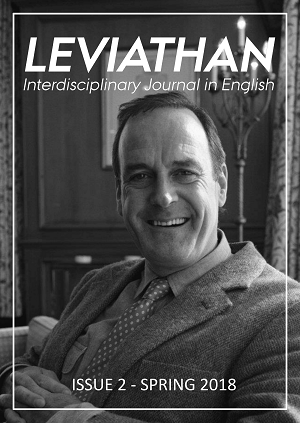Harold (Mitch) Mitchell’s role in the demise of Blanche Dubois in A Streetcar Named Desire
DOI:
https://doi.org/10.7146/lev.v0i2.104695Keywords:
Tennessee Williams, gender roles, mental decline, madness, homosexuality, marriage, Literature in English 1, Form and GenreAbstract
In Tennessee Williams’ play A Streetcar Named Desire, Stanley Kowalski has often been seen as the main reason why Blanche DuBois mentally falls apart at the end of the play. This is emphasized by the fact that he rapes her and that she subsequently is committed to a mental institution. However, I find that the role of Harold (Mitch) Mitchell thereby is downplayed and underestimated. This article argues that he in fact is the real cause of Blanche’s psychological downfall. Critics such as Judith J. Thompson refer to Mitch as elevated to the romanticized ideal of Allan Grey, Blanche's late husband. Blanche sees a potential new husband in Mitch, and when she realizes that he knows about her troubled past, she mentally collapses. While Stanley’s final act certainly is cruel and devastating, Mitch’s rejection of Blanche is what essentially sets off her final madness.
References
Guilbert, Georges-Claude. “Queering And Dequeering The Text Tennessee Williams’s A Streetcar Named Desire.” Cercles, 10 (2004), pp. 85-116, accessed on the 01.12.2017 http://www.cercles.com/n10/guilbert.pdf.
Kazan, Elia, director. A Streetcar Named Desire. (Danish translation: Omstigning til Paradis). Warner Bros, 1951, Watched on Filmstriben.dk 01.12.2017, https://fjernleje.filmstriben.dk/film/2952837300/omstigning-til-paradis.
Page, Nancy C. “A Self-Psychology Analysis of Tennessee William’s A Streetcar Named Desire.” The Arts in Psychotherapy, Vol.23, No.5, 1997, pp.417-422. Elsevier Science Ltd.
Science Direct, https://doi.org/10.1016/S0197-4556(96)00053-6.
Palmieri, Christian.T. “Marlon Brando.” biography.com, accessed 01.12.2017, https://www.biography.com/people/marlon-brando-9224306.
Rainsford, Dominic. Studying Literature in English. Routledge, 2014.
Thompson, Judith J. “Tennessee Williams: Memory, Myth and Symbol.” University of Kansas, Humanistic Studies, general editor David M. Bergeron, vol. 54, chapter two, pp. 25-51, Peter Lang Publishing, Inc., New York, 1987.
Williams, Tennessee. “A Streetcar Named Desire.” The Norton Anthology American Literature, shorter eighth edition, vol. 2, 1865 to the present, edited by Nina Baym and Robert S. Levine. W.W. Norton and Company 2013, pp. 1116-1177.
Downloads
Published
How to Cite
Issue
Section
License
Attribution-NonCommercial-NoDerivatives 4.0 International (CC BY-NC-ND 4.0)
You are free to share (copy and redistribute the material in any medium or format).
However:
You may not use the material for commercial purposes.
You must give appropriate credit, provide a link to the license, and indicate if changes were made. You may do so in any reasonable manner, but not in any way that suggests the licensor endorses you or your use.
If you remix, transform, or build upon the material, you may not distribute the modified material.
You may not apply legal terms or technological measures that legally restrict others from doing anything the license permits.





